The Trump administration has said it plans to deport Kilmar Ábrego García to Uganda, months after he was mistakenly sent to El Salvador, in a case that has become a flashpoint in the president’s wider crackdown on immigration.
In a filing, lawyers for Ábrego asked the courts to dismiss the case against him on grounds that it is a vindictive attempt to punish him for challenging his initial deportation to El Salvador.
The attempt to deport Garcia to far-flung Uganda – a country he has no known connection to – adds a new twist to a saga that become a lightning rod for Trump’s harsh crackdown on illegal immigration, which has seen rightwing supporters praise the president’s toughness but legal scholars and human rights advocates blast what they say is a haphazard rush to deport people without even a court hearing, in violation of basic US law.
Who is Kilmar Ábrego García?
Kilmar Ábrego García, 30, grew up in El Salvador and fled at age 16 because a local gang extorted and terrorised his family, court records state. He travelled to Maryland, where his brother lives as a US citizen, but was not authorised to stay.
Ábrego found work in construction and met his future wife, Jennifer Vasquez Sura. In 2018, he moved in with her and her two children after she became pregnant with his child.
In March 2019, Ábrego went to a Home Depot seeking work as a labourer when he was detained by local police, court records state.
The records say a criminal informant told police Ábrego was a member of MS-13, an international criminal gang, but police did not charge him and turned him over to the US immigration and customs enforcement (Ice).
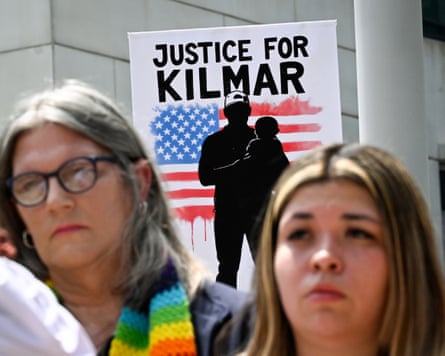
Ábrego, through his attorneys, has denied any affiliation with MS-13. He has no criminal record in either the US or El Salvador.
A US immigration judge denied Ábrego’s asylum claim because more than a year had passed since his arrival, but the judge granted him protection from being deported to El Salvador, determining he had a “well-founded fear” of gang persecution there, court records state.
Abrego was released and placed under federal supervision. He received a federal work permit and checked in with Ice each year, his lawyers said.
Why has he become internationally renowned?
In February, the Trump administration designated MS-13 as a foreign terrorist organisation. In March, it deported Abrego Garcia to a prison in El Salvador, violating the US immigration judge’s 2019 order.
Ábrego later claimed in court documents that he was beaten and psychologically tortured in the El Salvador prison. The country’s president, Nayib Bukele, denied these allegations.
The Trump administration later admitted it had mistakenly sent him to El Salvador’s notorious maximum security prison, but Donald Trump and other officials doubled down on claims that Ábrego was in MS-13.
The US supreme court later ordered the Trump administration to “facilitate” the return of Ábrego. He was returned in June, and then quickly arrested and charged with trafficking undocumented migrants.
That case stems from a 2022 traffic stop for speeding, during which Ábrego was driving with nine passengers. Tennessee police suspected human smuggling, but allowed him to drive on and didn’t charge him.
Ábrego pleaded not guilty and his lawyers filed a motion to dismiss the case based on “vindictive and selective prosecution”.
At that point he had not seen his family in more than 160 days.
Why is he being threatened with deportation to Uganda?
A US magistrate ruled in June that Ábrego had a right to be released from jail while he awaited trial, but he remained in a Tennessee jail at his attorneys’ request for about 11 weeks over fears that Ice would immediately try to deport him.
Thomas Giles, an assistant director for Ice, testified in July that Ábrego would be detained as soon as he was freed.
In response to concerns Ábrego would be deported without due process, a US district Judge prohibited Ice from immediately detaining him upon release in Tennessee.
Soon after this order, Ábrego’s attorneys asked a federal judge in Tennessee to release him.
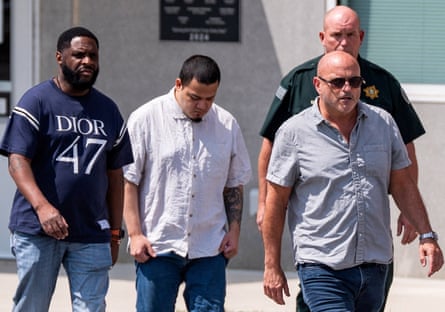
He was released on Friday and required to stay with his brother in Maryland and be subjected to electronic monitoring and home detention. In a statement on Friday, he said he saw his family for the first time in more than five months.
Before he was released, government officials made him a plea offer: remain in custody, plead guilty to human smuggling charges and be deported to Costa Rica, his lawyers said in a filing. He declined the offer.
After Ábrego left jail, Ice told his attorneys he would be deported to Uganda and should report to immigration authorities on Monday.
Later Friday, the government told Ábrego he had until first thing Monday to accept a plea in exchange for deportation to Costa Rica – where he will reportedly be treated as a refugee and not jailed – or else that offer would be off the table, his defence attorneys wrote.
The homeland security secretary, Kristi Noem, said the administration would not stop fighting until he was out of the US.
With Agence France-Presse and the Associated Press

 German (DE)
German (DE)  English (US)
English (US)  Spanish (ES)
Spanish (ES)  French (FR)
French (FR)  Hindi (IN)
Hindi (IN)  Italian (IT)
Italian (IT)  Russian (RU)
Russian (RU)  3 weeks ago
3 weeks ago









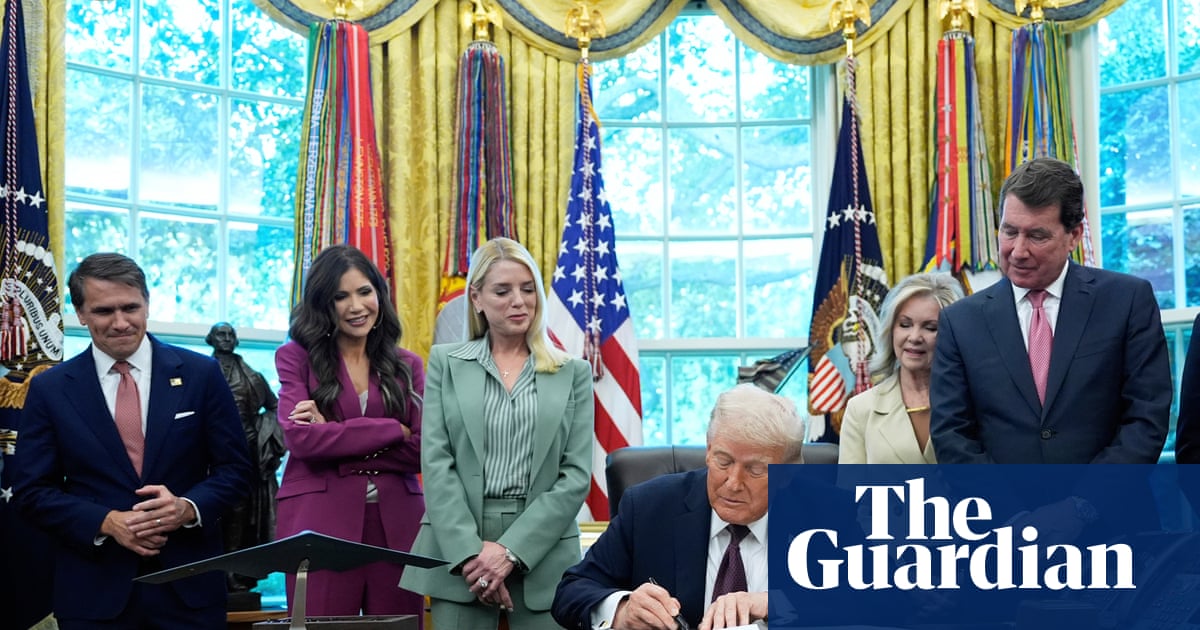



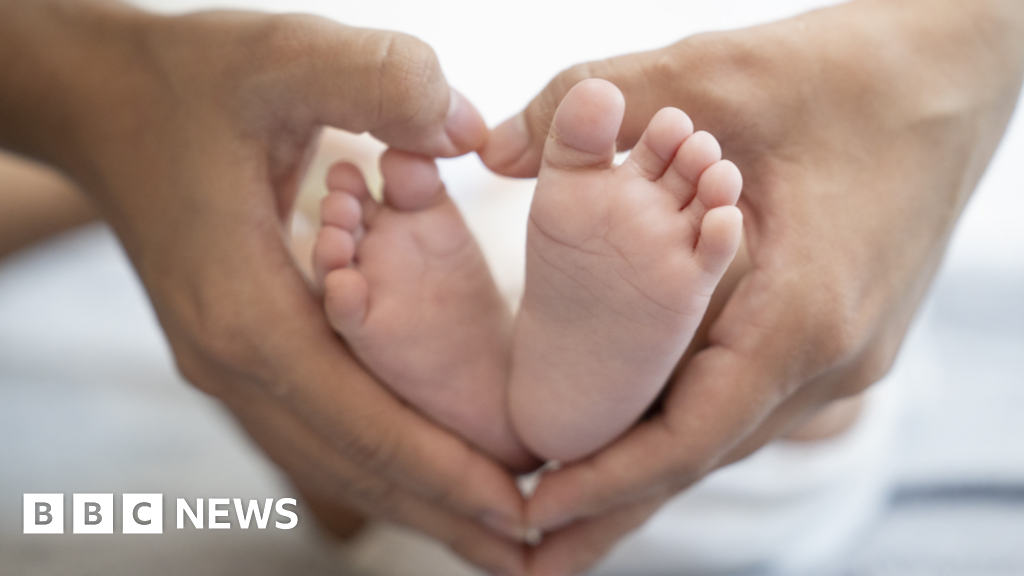






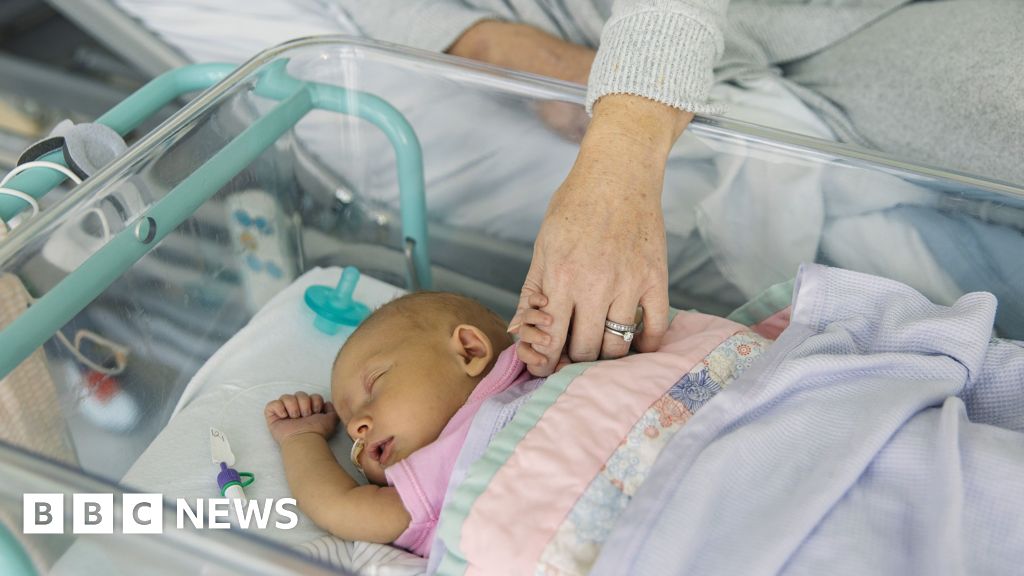



Comments